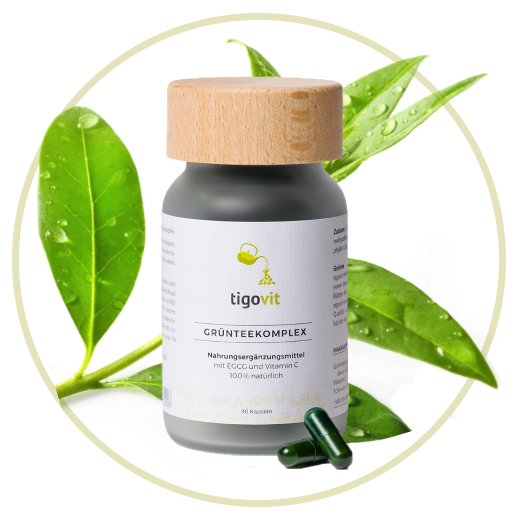
Der Frühling ist da! Zeit für einen Neuanfang. Wir haben das kalte Wetter und den Winter hinter uns gelassen und die Zeit mit Sonnenschein, zwitschernden Vögeln und aufblühender Natur eingeläutet. Klingt idyllisch? Nicht so sehr, wenn wir von Krankheiten oder Allergien heimgesucht werden. Doch mit den richtigen Nährstoffen gerüstet, kannst du dich getrost entspannen und eine der schönsten Jahreszeiten genießen.
Gebe dir diesen Frühling die Chance, mit der Gesundheit neu anzufangen. Die Einnahme der richtigen Vitamine kann ein wesentlicher Bestandteil eines gesunden Lebensstils sein, zu dem auch die richtige Ernährung, Bewegung und gute Schlafgewohnheiten gehören. Aber vor allem die richtigen Mikro-Nährstoffe helfen deinem Körper auf die Beine. Sie versorgen dich mit allem, was du brauchst, helfen bei der Regeneration, fördern die Entgiftung und greifen dem Körper unter die Arme.
Die wichtigsten Nahrungsergänzungsmittel für den Frühling:
Im Frühling ist es wichtig, Vitamine zu sich zu nehmen, die einmal gesund halten, den Körper aus dem „Winterschlaf“ wecken und die Teilnahme an Aktivitäten im Freien ermöglichen. Sie können bei Allergien helfen und eine gesunde Haut und Sehkraft erhalten.
Jetzt wollen wir Dich nicht länger auf die Folter spannen. Hier nun die wichtigsten Nahrungsergänzungsmittel für einen bestmöglichen Start in den Frühling.
Vitamin A
Vitamin A hat starke antioxidative Eigenschaften, die wichtige Funktionen des Immunsystems und der Organe unterstützen. Es hält auch die Haut nach Sonnenschäden gesund, indem es die Reparatur und das Wachstum fördert. Es ist besonders wichtig, da unsere Haut nach der langen sonnenarmen Zeit wieder stärkerer Strahlung ausgesetzt ist.
Vitamin B
Es ist empfehlenswert, ein B-Komplex-Präparat einzunehmen, da B-Vitamine eine breite Palette von Körperfunktionen erfüllen. Sie sind wichtig unter anderem für die Vorbeugung, die Aufrechterhaltung des Energieniveaus und den Umgang mit Stress.
Vitamin B1 (Thiamin), B2 (Riboflavin) und B3 (Niacin) halten das Nervensystem gesund, setzen Energie aus der Nahrung frei und sorgen für gesunde Haut und gute Sehkraft. Diese Vitamine sind im Frühjahr von entscheidender Bedeutung, da sie den Körper vor Sonnenschäden schützen und gleichzeitig die für körperliche Aktivitäten benötigte Energie liefern.
Vitamin B6 und B12 unterstützen die Produktion roter Blutkörperchen und stellen die ordnungsgemäße Funktion von Gehirn und Nervensystem sicher. Diese Vitamine gehen übrigens durch vermehrtes Schwitzen bei wärmerem Wetter leicht verloren. Noch ein Grund, auf eine ausreichende Aufnahme zu achten.
Vitamin C
Das Vitamin C ist eine starke Antioxidantien-Quelle und spielt eine wichtige Rolle bei der Unterstützung und Funktion des Immunsystems. Die immunologischen Vorteile von Vitamin C haben in Studien gezeigt, dass es die Dauer von saisonalen Gesundheitsproblemen verkürzt und die Funktion der Atemwege, die Gesundheit der Nasennebenhöhlen und die Hautgesundheit fördern kann.
Vitamin C hilft dem Körper, mit der Hitze umzugehen, indem es die Gesundheit der Haut und der Blutzellen schützt. Vitamin C verhindert außerdem Zellschäden und steigert die Kollagenproduktion, die die Haut vor Sonnenschäden schützt. Vitamin C ist auch ein natürliches Antihistaminikum, und deswegen für Heuschnupfen-Geplagte besonders wichtig.
Vitamin D
Ein Bad in der Frühlingssonne wirkt sich positiv auf die Stimmung aus. Umgekehrt haben zahlreiche Studien bestätigt, dass es einen deutlichen Zusammenhang zwischen gedrückter Stimmung und Lichtmangel gibt. Neben guter Laune ist es jetzt auch wieder an der Zeit, die Sonne zum Vitamin-D-Tanken zu nutzen, denn unsere Vitamin-D-Speicher sind durch die lange, lichtarme Jahreszeit leer. Dabei genügt ein moderates Sonnenbad, bei dem Hände, Gesicht und Teile von Armen und Beinen 15 bis 20 Minuten der Sonne ausgesetzt werden.
Grundvoraussetzung dafür sind eine ausreichend hohe UVB-Strahlung, die nur über die Mittagszeit vorherrscht, und der Verzicht auf Sonnenschutzmittel. Der Körper nutzt die UVB-Strahlung der Sonne, um aus einer modifizierten Cholesterinverbindung in der Haut sein eigenes Vitamin D zu bilden. Ein weiteres wichtiges Argument: Eine gute Versorgung mit Vitamin D unterstützt unser Immunsystem in der noch manchmal kalten Übergangszeit.
Vitamin E
Nahrungsergänzungsmittel mit Vitamin E haben mehrere Vorteile. Sie helfen, die körperliche Ausdauer zu verbessern, indem sie das Energieniveau erhöhen und Muskelschäden durch Sport reduzieren. Da Vitamin E ein Antioxidans ist, kann es auch helfen, zellschädigende Prozesse, wie z. B. Sonnenschäden, zu reparieren.
Zink
Zink ist ein Mineralstoff und essentieller Mikronährstoff, der eine große Anzahl von gesundheitlichen Vorteilen und Funktionen im gesamten Körper bietet und hervorragend zur Förderung des Immunsystems geeignet ist. Die zunehmende Beliebtheit von Zink im Kampf gegen saisonale Beschwerden wird durch wissenschaftliche Untersuchungen gestützt. Sie zeigen, dass Zink eine Rolle bei der Unterstützung der Atemwegsfunktion, des Muskelkomforts und der Gesundheit der Nebenhöhlen spielen kann. Wichtig also, um die Beschwerden des Heuschnupfens in den Griff zu bekommen.
Selen
Selen ist ein Mineralstoff und gehört zu den essentiellen Spurenelementen. Der menschliche Körper kann es nicht selber produzieren, stattdessen muss es über die Nahrung oder als Nahrungsergänzungsmittel zugeführt werden. Im Körper erfüllt Selen zahlreiche Funktionen. Unter anderem schützt es uns vor freien Radikalen und damit vor Krankheiten und einem beschleunigten Alterungsprozess. Es beeinflusst auch unser Immunsystem, die Gesundheit von Haut, Haaren und Nägeln und ist an der Produktion des Schilddrüsenhormons beteiligt.
Omega-3
Schon seit Längerem ist bekannt, dass Fett nicht grundsätzlich schlecht ist. Vielmehr sind die Qualität und Zusammensetzung des Fettes entscheidend. Omega-3-Fettsäuren gehören zu den „guten“ Fetten und unterstützen wichtige Körperfunktionen. Sie tragen beispielsweise einen wesentlichen Beitrag für die Erhaltung der normalen Herzfunktion bei. Doch die Bandbreite, wie Omega-3-Fettsäuren wesentliche Funktionen unseres Körpers beeinflussen können, ist noch viel umfassender.
Die Omega-3-Fettsäuren EPA und DHA zählen zu den essenziellen Fettsäuren und können vom Körper nicht selbst hergestellt werden. EPA und DHA kommen vor allem in fettreichen Kaltwasserfischen wie Hering, Makrele oder Sardinen vor. Sie tragen zu einer normalen Gehirn- und Herzfunktion bei und unterstützen den Erhalt der normalen Sehkraft (laut EFSA, der Europäischen Behörde für Lebensmittelsicherheit).
Kurkuma
Ein Exot hat sich in unsere Liste der Top-Wirkstoffe für den Frühling eingeschlichen: Kurkuma. Der aktive Wirkstoff in Kurkuma, genannt Curcumin, wird seit vielen tausend Jahren in der traditionellen ayurvedischen Medizin verwendet und hat eine breite Palette von Gesundheitsanwendungen. Von besonderem Interesse ist hier die Forschung, die gezeigt hat, dass Curcumin das Immunsystem unterstützt und einen starken saisonalen Schutz bietet.
Studien haben gezeigt, dass Curcumin die Gesundheit der Atemwege unterstützt, die mit saisonalen Gesundheitsproblemen zu kämpfen haben, während es gleichzeitig das Immunsystem stärkt.
Fazit:
Um dein Immunsystem zu stärken, solltest du auf eine ausreichende Zufuhr von wichtigen Nährstoffen und Vitaminen achten. Die Aufnahme ist über eine gesunde und ausgewogene Ernährung möglich. Aber vor allem in den Wintermonaten oder in der Zeit danach braucht das Immunsystem besonders tatkräftige Unterstützung. Dann kann mit einer zusätzlichen Einnahme durch qualitativ hochwertige Nahrungsergänzungsmittel unterstützt werden. Und der Frühling kann kommen!
Quellen:
Inadequacy of Immune Health Nutrients: Intakes in US Adults, the 2005–2016 NHANES
Refocusing vitamin A supplementation programmes to reach the most vulnerable; Erin McLean1, Rolf Klemm2,3, Hamsa Subramaniam4, Alison Greig5
On the effect of vitamin C intake on human health: How to (mis)interprete the clinical evidence; Jens Lykkesfeldt.
Vitamin A: its many roles—from vision and synaptic plasticity to infant mortality; John E. Dowling.
Immunologic Effects of Vitamin D on Human Health and Disease; by Nipith Charoenngam 1,2 and Michael F. Holick 1
Bilder:
Photo by Andrey Zvyagintsev on Unsplash
Pic by Siberian Art/Shutterstock, Nummer: 1027919113






